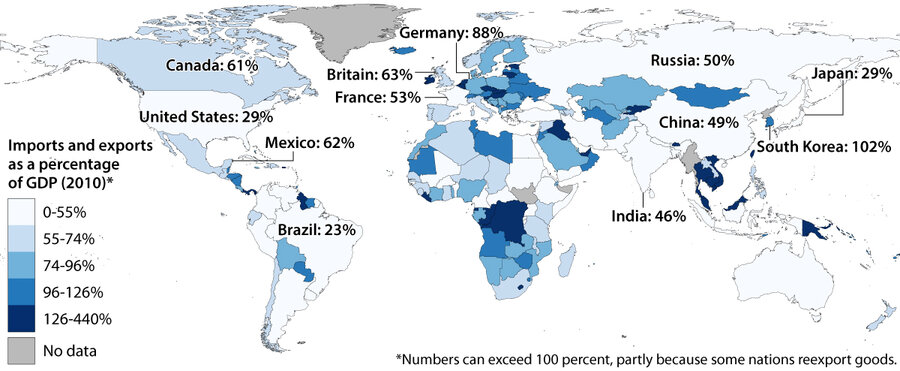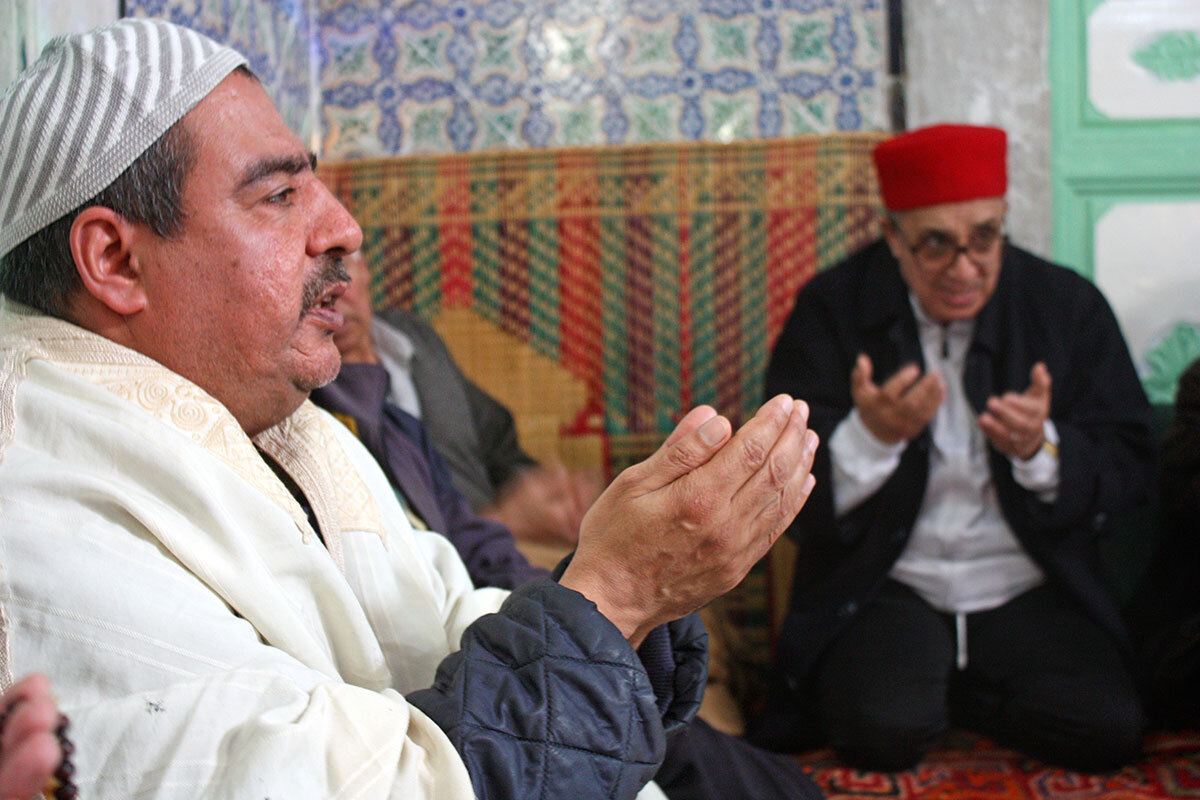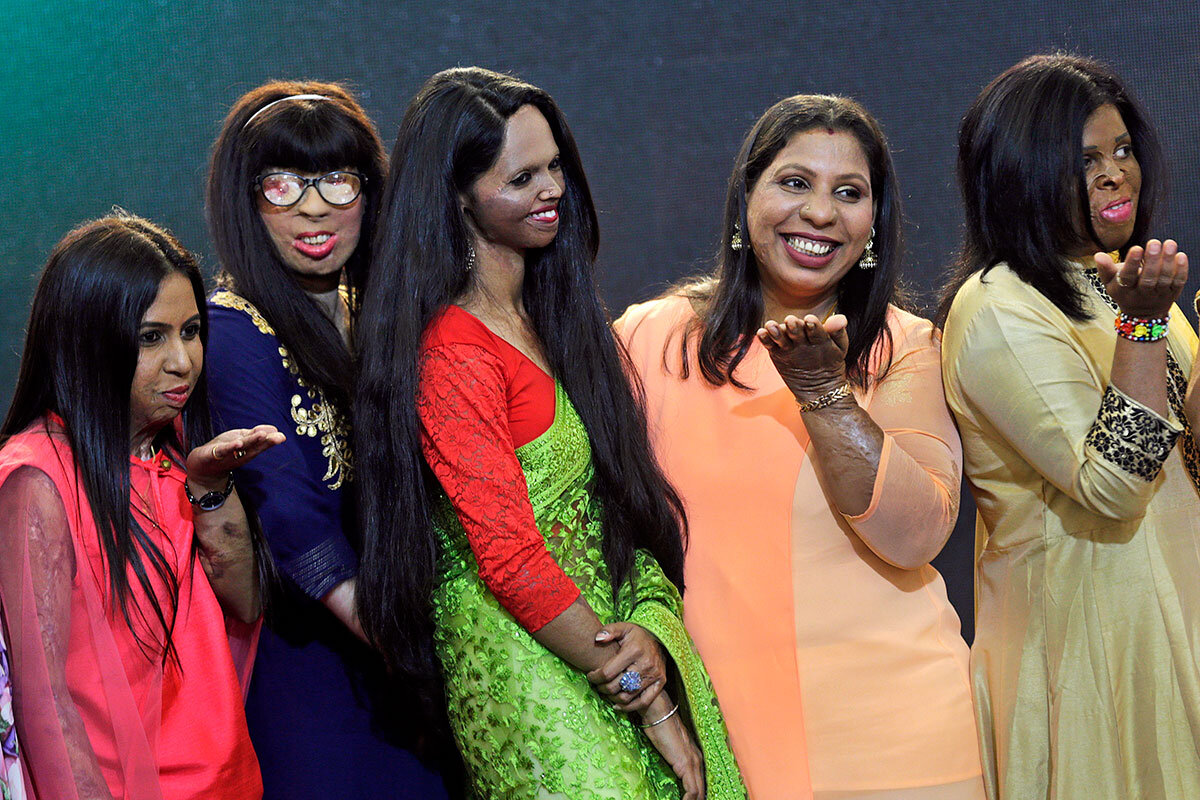The resignation of Gary Cohn, President Trump's economic adviser, shook markets already on edge over the sudden prospect of tariffs. The jumpiness underscored Wall Street's distaste for anything that might be seen as brinkmanship.
Monitor Daily Podcast
- Follow us:
- Apple Podcasts
- Spotify
- RSS Feed
- Download
 Amelia Newcomb
Amelia Newcomb
Hark back to the era that produced International Women’s Day, which the world observes tomorrow, and you’ll hear familiar echoes.
For one thing, women were on the march. Some 15,000 rallied in New York in 1908 for shorter work hours, better pay – and the vote. By 1911, International Women’s Day was born with celebrations in Europe. By 1917, March 8 was its birthday, marking the day Russian women went on a wartime strike for bread, peace – and the vote.
Fast forward a century. In many countries, women are reminding leaders they can deploy that very hard-won vote as they once again fill the streets, last year and this, over issues like pay, gender-based harassment and violence, and equal rights.
That’s what spurred our series, “Reaching for Equity,” which concludes today. In their reporting, our correspondents found controversial initiatives – using quotas in politics – and some counterproductive ones: turning too much of a Western lens on how to move forward. But they also surfaced a common thread: The growing refusal to settle for “we’ll get to that later,” or to remain silent about offensive or criminal behavior.
And there’s a common tone: optimism. That's seen in this year’s theme, #pressforprogress, which is grounded in the overwhelming evidence that when women do well, the world does well.
Now to our five stories, including some that show how a collective sense of good and a willingness to abandon entrenched assumptions strengthens resilience and fosters progress.











